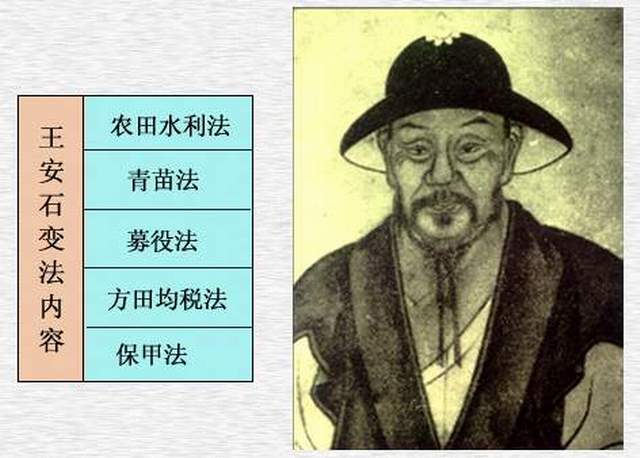宋朝
Reform Instituted by Wang Anshi as Prime Minister
北宋王安石变法
The Northern Song Dynasty suffered poverty as well as weakness.
北宋既贫穷又软弱。
The redundancy of officials and soldiers, and extravagant expenditure resulted in a severe financial crisis.
过多的官员和士兵以及过度的消费导致了严重的经济危机。
Ever since the early years of the Song Dynasty, peasant uprisings had increased and the royal government faced political crisis.
就算是在宋朝的早期也出现了不断的农民起义,政府面临着政治危机。
Although it maintained a large army, they Northern Song Dynasty had struggled in misery and crises, never having a strong national power.
尽管北宋掌握着一个庞大的军队,它却输掉了和辽国还有西夏的每一场战争。从未有过强大的国力。
A sense of misery impelled many reformers of political foresight to initiate reform and seek the way to build a prosperous country with efficient military forces.
国家的不幸促使一些有政治远见的改革家开始改革并寻求利用有效的军事力量建立一个繁荣的国家的途径。

In 1069, Song Shenzong, Emperor who was eager to find the way of governing the country, appointed Wong Anshi, vice prime minister, to carry out reform.
1069年,宋神宗作为一个想要找到统治国家方法的帝王,命副丞相王安石实行变法。
The reform was pursued mainly in financial and military areas.
变法主要集中于经济和军事领域。
The chief content and purpose of Wang Anshi's political reform lay in bringing about national prosperity and powerful military forces.
王安石变法的主要内容和目的在于带来国家繁荣和有力的军事武装。
He restrained himself from putting forward such crucial proposals as reducing the number of redundant officials, cutting down redundant expenditure and controlling annexation of land.
他克制自己不要提出一些重要的决策例如裁减官员、削减开销以及控制土地兼并。
His reform achieved remarkable success in the increase of national revenue, the construction of water conservancy works, and the improvement of combat effectiveness.
他的变法取得了很大的成效,国民收入得以上升、水利工程得到建设、战斗的效力不也断发展。
In spite of this, the old liners were still strongly opposed to the reform, throwing obstacles in its way.
尽管如此,遵循守旧的人仍然强烈反对变法,为变法增加了难度。
After Song Shenzong's death, the conservatives came to power, and the reform ended in failure.
宋神宗死后,反对者占了上风,变法以失败告终。


